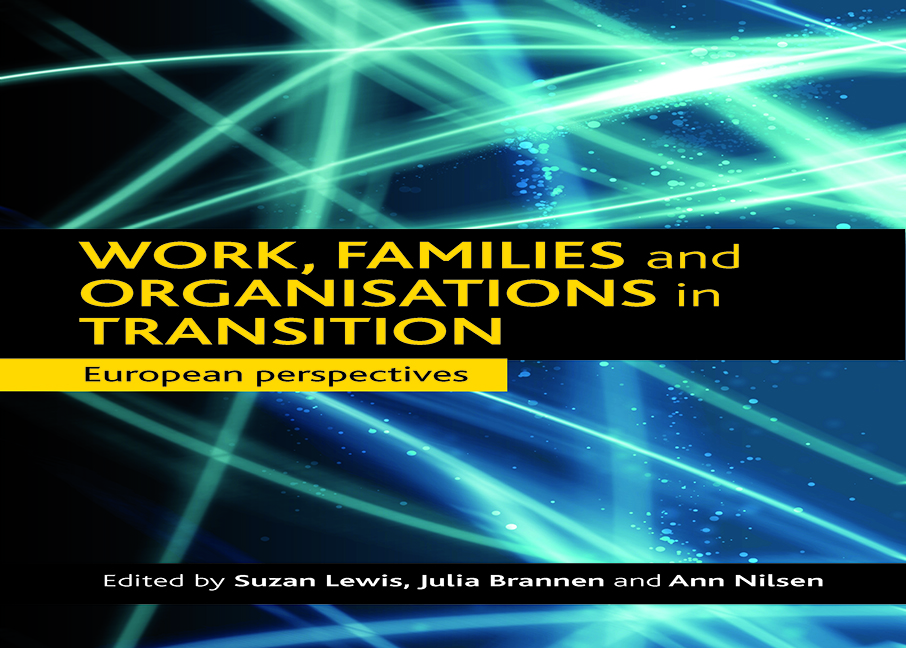Book contents
- Frontmatter
- Dedication
- Contents
- Acknowledgements
- Notes on contributors
- one Work, family and organisations in transition: setting the context
- two Research design and methods: doing comparative cross-national research
- Part One Public sector organisations
- Part Two Private sector organisations
- Part Three Comparisons
- Appendix
- References
- Index
ten - Changing contexts, enduring roles? Working parents in Portuguese public and private sector organisations
Published online by Cambridge University Press: 16 July 2022
- Frontmatter
- Dedication
- Contents
- Acknowledgements
- Notes on contributors
- one Work, family and organisations in transition: setting the context
- two Research design and methods: doing comparative cross-national research
- Part One Public sector organisations
- Part Two Private sector organisations
- Part Three Comparisons
- Appendix
- References
- Index
Summary
This chapter discusses the two organisational case studies that took place in Portugal, one in the public sector and the other in a private company. It compares the two organisational contexts in terms of changes, their prevailing labour policies and practices and the way in which working parents with young children perceive their working and family lives. Before comparing the two organisational case studies, the chapter begins with a reference to the political, social and economic changes that Portuguese society has undergone in the last 40 years and the policies regulating labour, supporting the family and defining forms of childcare.
Portuguese pathways to modernity
The working parents who took part in the case studies were born in the 1970s, a decade marked by profound change. Up until and including the 1960s, Portugal was characterised by an agriculture-based economy, traditional cultural patterns and an authoritarian political system, including the exploitation of large colonies in Africa. In the 1970s, this system collapsed and a radical opening-up of all these spheres occurred.
In April 1974, a revolution brought democracy and Portugal experienced major structural changes. The Portuguese Constitution1 defined the new legal framework for the changes to be made in the country. Family law was changed and the concept of the male breadwinner was abolished. Both members of a couple now had the same rights and obligations and both parents were equally responsible for supporting and caring for their children. The Constitution also promoted equal access to education and work.
Inspired by the ambition of constructing a socialist regime, this led to the nationalisation of a significant number of companies. This process culminated in a democratic capitalist regime, in which different layers of modernity and tradition continue to coexist. Broadly speaking, we may describe these structural changes as the movement from a traditional social system towards modernity (da Costa and Machado, 2000). This has happened through a set of diffuse processes taking place in new phases of modernity, characterised by global networking, deregulated financial and labour markets, and new inequalities and risks (Boltanski and Chiappello, 1996; Castells, 1996; Esping-Andersen, 1996; Beck, 2000).
- Type
- Chapter
- Information
- Work, Families and Organisations in TransitionEuropean Perspectives, pp. 149 - 166Publisher: Bristol University PressPrint publication year: 2009



